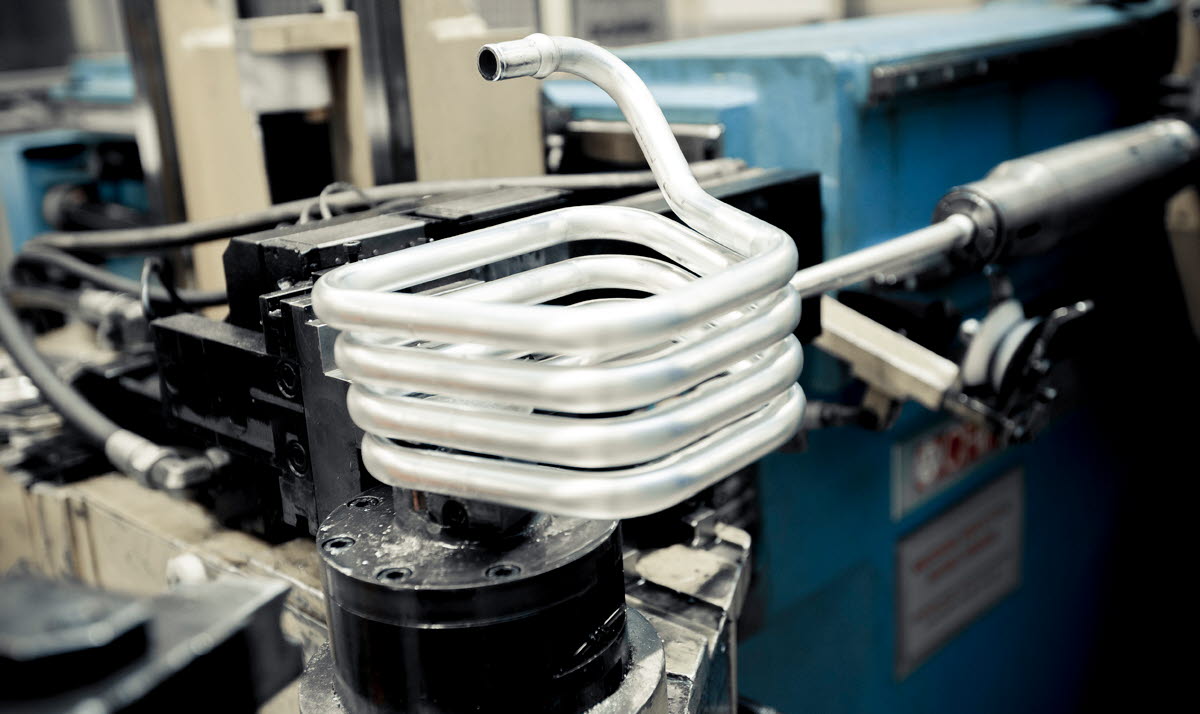Pipe bending and end forming
Proton Engineering has extensive experience of complex pipe and profile bending in several different materials such as steel, stainless steel, aluminium, copper and brass. Our customers are world leaders in the automotive and engineering industries.
Thick and Slender Tubes Bending
We bend welded and seamless pipes and profiles made from various materials such as steel, stainless steel and aluminium. We bend round pipes and square hollow sections, and can even bend elliptical pipes. We bend both coated pipes and untreated pipes. Our CNC-controlled bending machines can handle pipes and profiles in the dimensions 6–150 mm with or without mandrels and with a fixed or free radius.
Automated production cells
In our production, we work with automated cells for pipe bending, section bending, end forming and making holes in the dimensions 6–63 mm. To ensure correct bending in our cells, we use weld seam detection.
Our automated cells are also capable of performing stud welding to facilitate further assembly on your premises.
In most cases, some form of end forming is required before or after the pipe is bent. In those cases where end forming is not included in an automated cell, this will be performed as a separate operation. End forming is used for various reasons, such as e.g. hose stops for hose installation or as preparation before installation in various types of components etc. End forming is a complex process that among other things permits the installation of attachments by first shrinking the pipe so that after the attachment has been installed the pipe expands again.

Quick facts
Bending and end forming of welded and continuous pipes and sections made from various materials such as steel, stainless steel and aluminium.
We bend both coated pipes and untreated pipes.
CNC-controlled bending machines can handle the dimensions 6–150 mm with or without mandrels and with a fixed or free radius.
Automated cells.